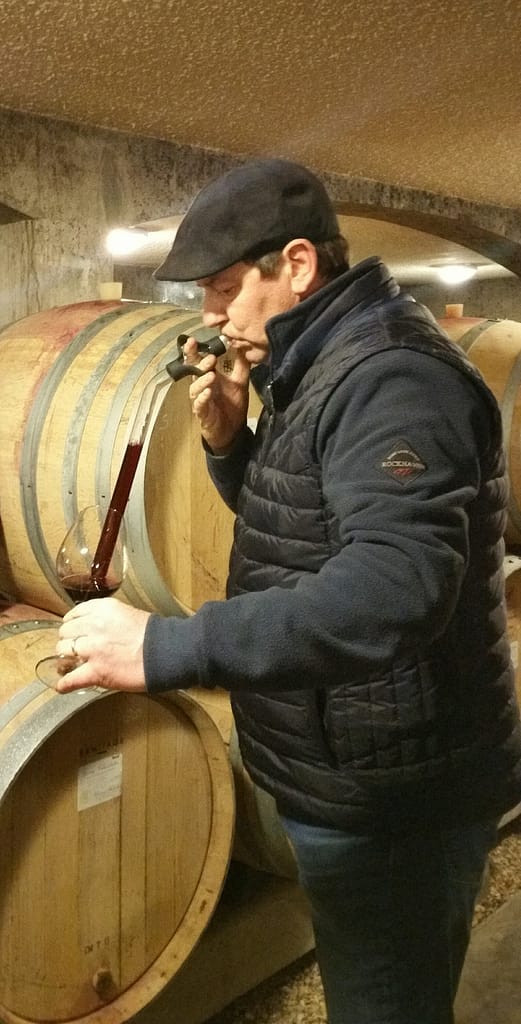Denis Bachelet is one of those very few winemakers in Burgundy whose wines have managed to achieve iconic status. This status is remarkably incongruous for a man who is himself invariably soft-spoken, gracious, and polite. A portion of his cult-like renown may be due to the scarcity of wines produced by such a diminutive estate: at 3.85 hectares, it is less than one-third the size of Domaine Armand Rousseau, Bachelet’s co-regent of Gevrey. But the greater reason for the Bachelet prominence is the incomparable quality of his wine. As Clive Coates has written: “The Denis Bachelet style produces wines of intensity, great elegance, subtle and feminine in the best sense. They are concentrated, harmonious, pure and understated.”
As befits a great domaine, there is a solid base in superb vineyards, which are well-situated, prudently farmed, and comprised of remarkably old vines. Bachelet follows the precepts of lutte raisonée, a system of vine cultivation that is essentially organic and non-interventionist. Bachelet adheres to a similarly laissez-faire philosophy in his winemaking, choosing a decidedly traditional approach to winemaking that allows the vintage to express itself unimpeded by modernist techniques.
● COUNTRY
● France
● REGION
● Burgundy
● APPELLATION(S)
● Gevrey-Chambertin
● WINEMAKER
● Denis Bachelet
● FOUNDED
● 1983
● VINEYARD AREA
● 3.85 hectares
● FARMING
● Lutte raisonnée
● WEBSITE
● N/A


